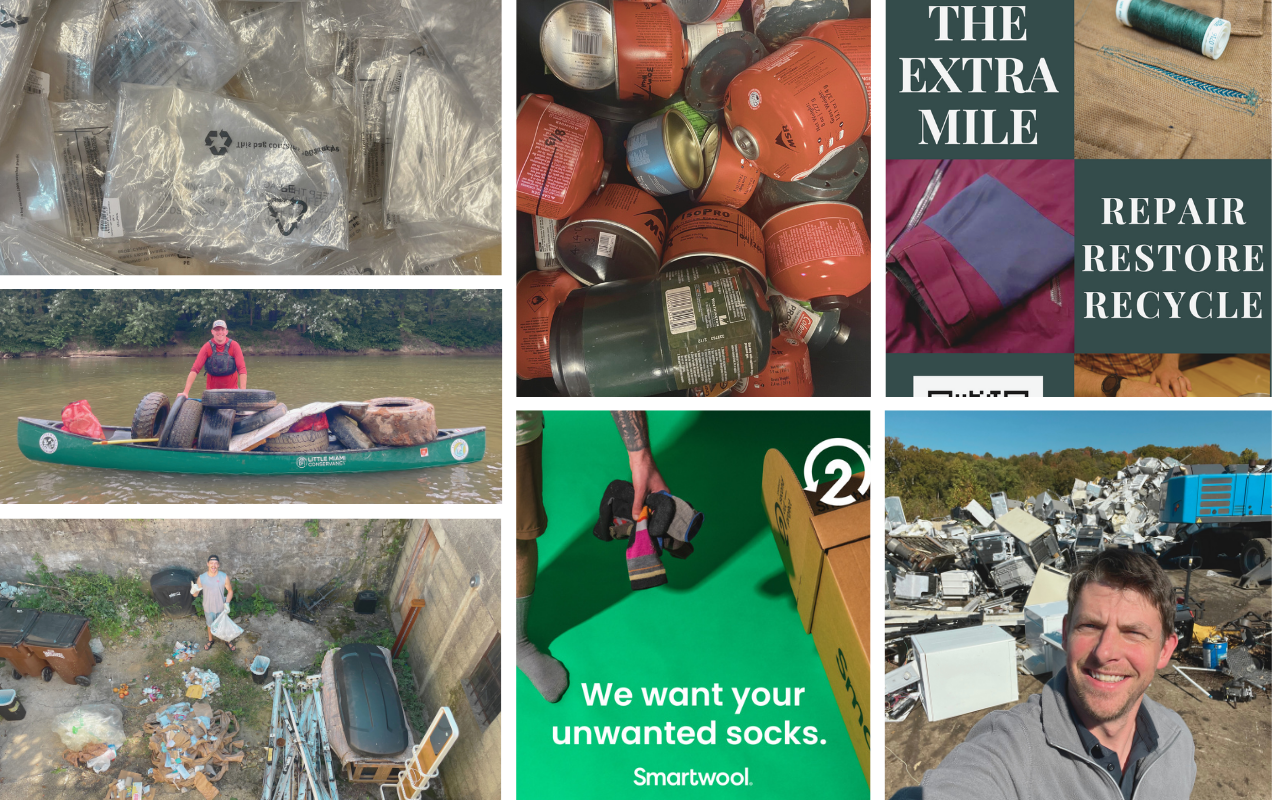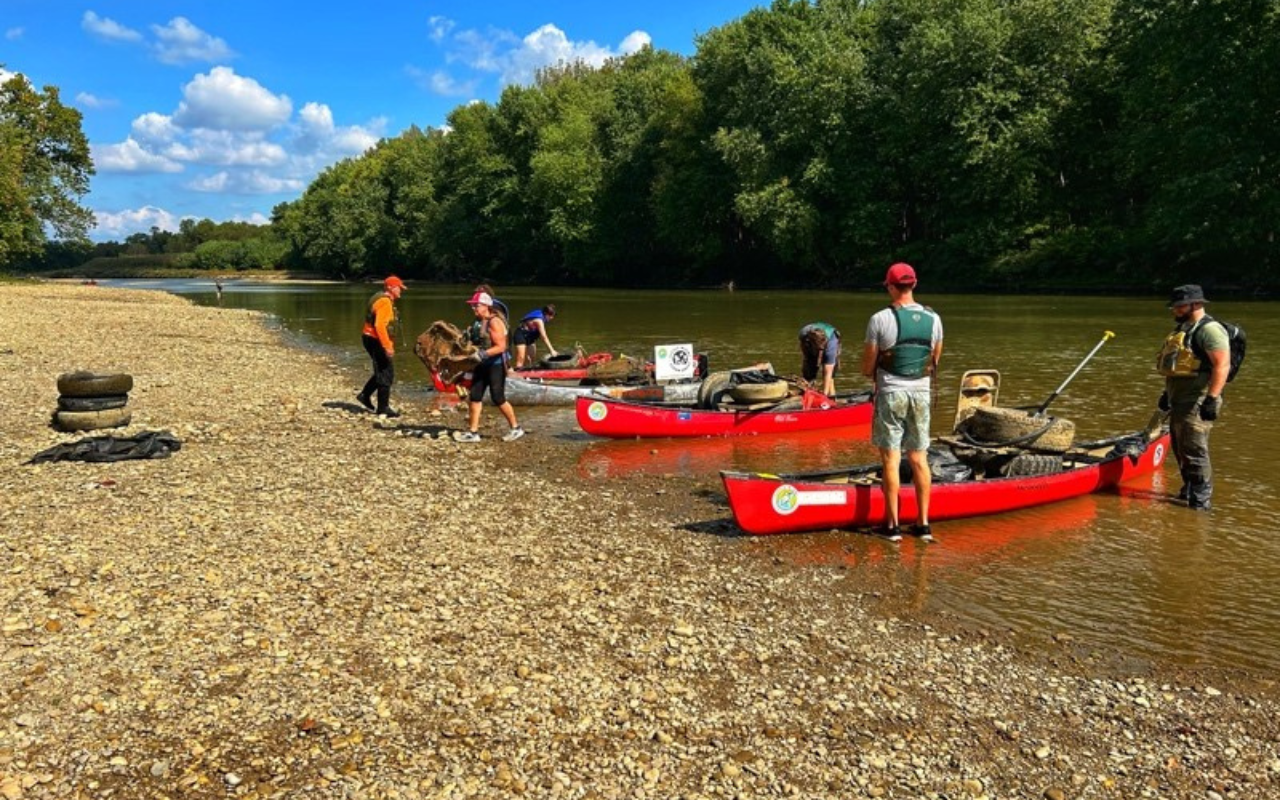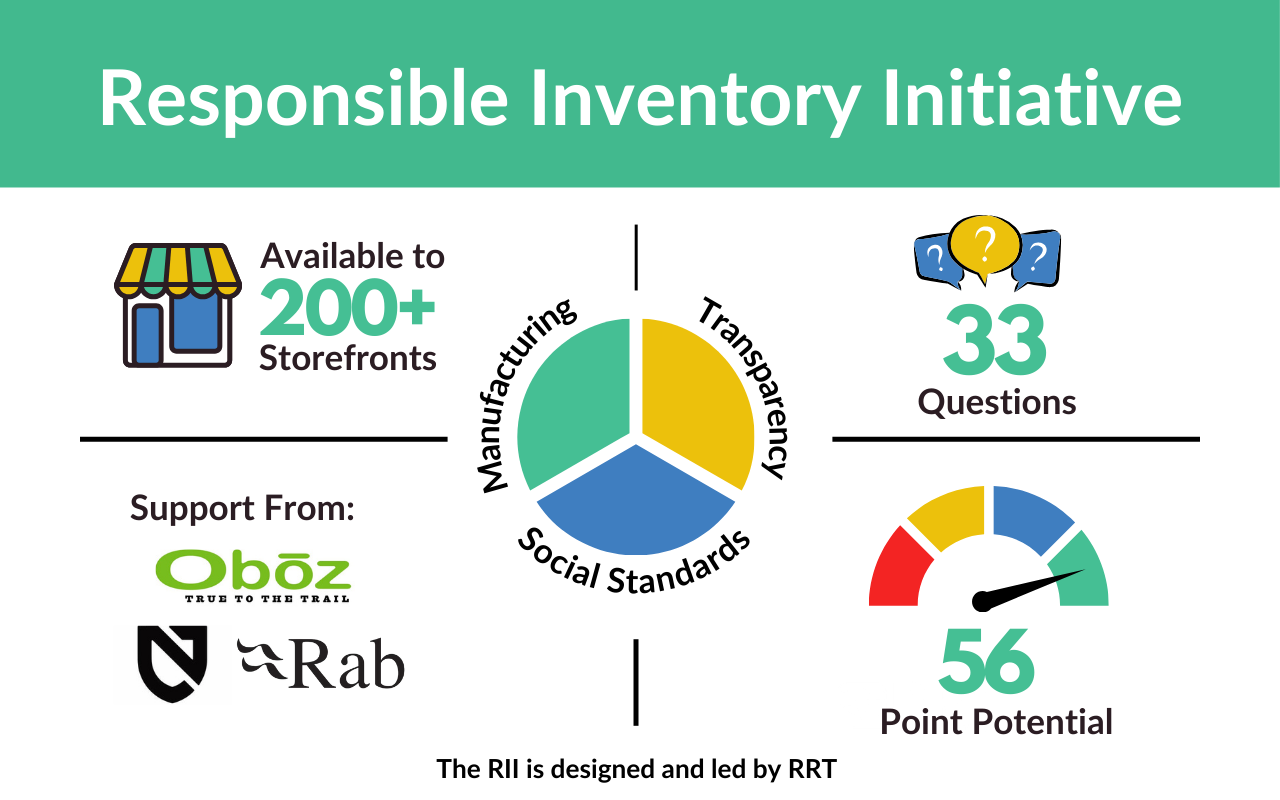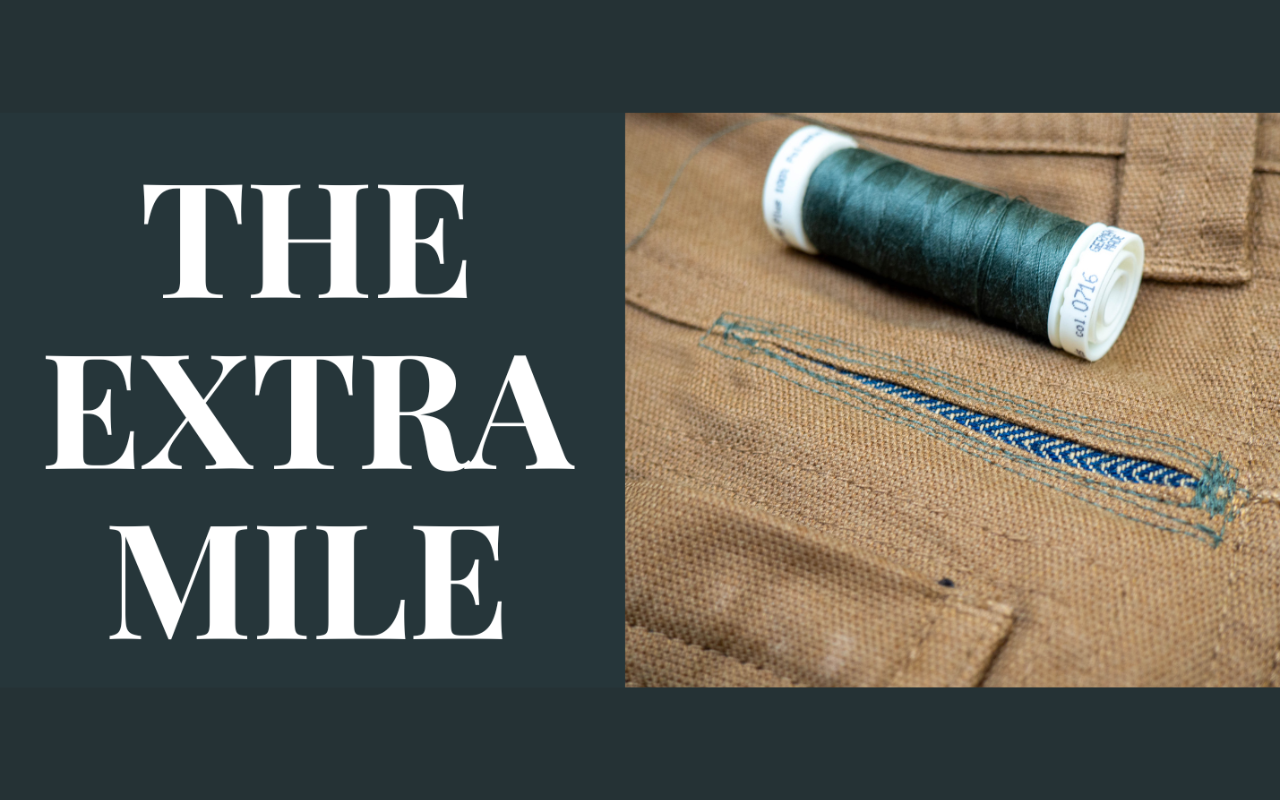Sustainability
The outdoor industry has challenges ahead at better controlling its impact, but there are actionable steps that we are taking to be at the forefront of change. As an independent retailer we have the freedom to make more conscious decisions, create our own green initiatives, and pursue environmental certifications that open doors to allow us to lower our overall footprint on the environment. We want to be able to follow our own “Leave No Trace” ethical standards not only as adventurers, but as a business as well.

Waste Diversion
Recycling and Reuse Standards: We recycle all accepted materials within local standards, avoiding the landfill whenever possible. Acceptable non-recyclable products are kept and reused for packaging, fill, or shipping from the store; we never use new boxes or plastics. keeping in tune with refining our waste management, we are working towards finding the proper disposal outlets for all streams of waste in our store, everything from batteries to bubble-wrap have a place. With these principles we have achieved a waste diversion rate of over 90%! Our poly bag innitiative is leading the way with over 200lbs recylcled every year. That is about 1,000 sq feet of plastic diverted.
Local Stewardship
We are constantly taking on initiatives that better educate new generations of adventurers how to be responsible. We also help put boots on the ground for trail maintenance, river clean ups, and fundraisers. Since our inception we've organized river sweeps on the Little Miami River leading volunteers all summer, each year removing tens of thousands of pounds of debris and 50-100 tires from the river. Our efforts have expanded and drawn media attention for our "Tire King Challenge" drawing awareness and support to our cause. With well over a decade of events, RRT and volunteers have helped to maintain our National and Scenic River for all to enjoy.


The Responsible Inventory Initiative
There was no baseline, so we created our own. We took the initiative to write our own report, assessment, and tools to work with our brand partners and create a pathway toward more responsible assortments. We look at the manufacturing, transparency, and social standards of a brand partner and develop it into a framework that educates retailers across the country and in turn increasing awareness for all consumers. With this framework we can all work toward a more sustainable future and you can shop at RRT knowing that we've put every effort to holding ourselves and our brands accountable. The RII has been years in the making and will launch across specialty retail in 2025.
End of Life Consideration
RRT is committed to going the extra mile and providing resources that consider the extended use of and eventual end of life of your products. We offer group send backs for manufacturer repairs and product recycling. We also offer in-house repairs for simple fixes. RRT is a collection hub for recycling socks through Smartwool's Second Cut Project and for used camp gas canisters to be safely recycled. RRT collects year-round any used outdoor gear for donation to Adventure Crew, making the outdoors more accessible for all!


Everyday Actions
All employees have access to a full kitchen, allowing us to cut out to-go cups, utensils, and containers. All of our events are hosted with reusable camp mugs. Shopping bags are recycled and recyclable paper products, and during the holiday season all of our wrapping paper and gift boxes are made out of recycled paper and are made to be recycled. Our gift cards are reusable with recycled paper envelopes. We offer accomodations like a locker room, shower, and bike storage to promote employees cycling to work. These are each just small examples on how we can make changes to our everyday opperations that will make a big difference.
